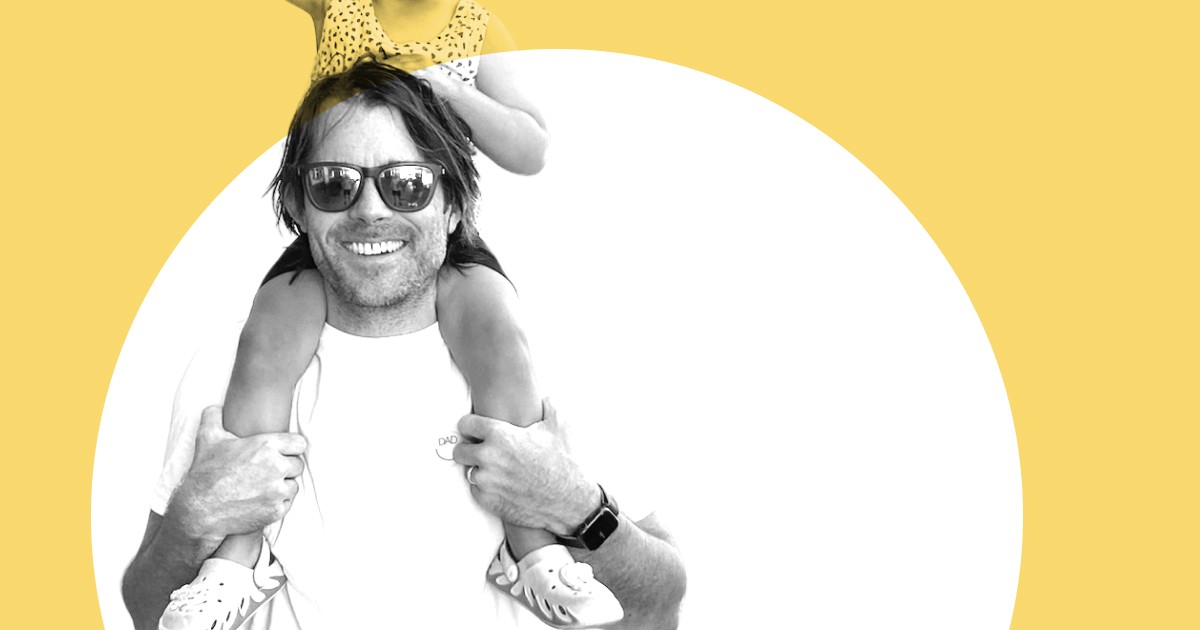It takes zero courage to give advice, but it takes plenty of courage to change
Dec 10, 2022
“You should really be careful when exposing your baby to the sun!”
I was sitting on a bright white chaise lounge with our 4-month old daughter on my lap facing the pool. It was a hot sunny day in California’s Central Coast wine country. My wife and I were lounging out at a funky motel between trips to local vineyards. This was our first road trip with our daughter and a pair of overzealous moms (at least I hope they were) had just yelled some advice no one asked for.
Thanks, but she’s not in direct sunlight, and I didn’t ask.
More importantly, I suddenly felt defensive, quickly looking to defend my position by making sure all parts of her body were covered—which they already were.
Giving advice: In search of recognition
I was fuming inside, but after reflecting on it days later, I realized how often I’ve thrown unsolicited advice at others.
I had a friend who would come to me, not looking for advice, but just to talk because he needed to be heard. I would constantly want to “help.” But he was just looking for empathy and support in his current situation. I’d push beyond the boundaries of the conversation and try to give my perspective. Even after sensing resistance, it ended with me sending a long email trying to be as direct as possible about what I thought he could do better.
What a judgemental asshole.
Instead of solving his problems, it just made me feel better about myself—or righteous—about doling out life advice. I thought I was being a good friend even if it meant we wouldn’t talk for months on end, gripping onto the satisfaction I meant well.
Our desire to help can oftentimes be grounded in self-centeredness. In truth, it gives us an edge of superiority to “know” they just might use our advice. But it’s masked in seemingly helpful advice.
Four separate studies led by researcher Michael Schaerer suggest that giving advice makes us feel more powerful. And during the same study, if you felt you were influencing someone's behavior, it led you to feel even more powerful!
Seeking freedom from recognition
In the book, The Courage to Be Disliked, a teacher and a student discuss the principles of psychologist, Alfred Adler. The teacher claims that all problems are interpersonal relationship problems. And one way to solve some of these problems is by understanding the separation of tasks.
In a relationship, there are two sides. Part of the reason there are problems between people is that it’s easy to confuse the tasks of each side. Most times, both people just want to be heard. If you’re about to dish out your impassioned perspective on how the world works, it’s helpful to gauge the task of the other person.
How? By asking ourselves before giving advice, “Whose task is it?
For example, if a child has homework to do, but is avoiding doing it. Whose task is it to complete the homework? Should the child only do the homework to satisfy the parent who is hovering and pushing the child to finish? Of course not. The child completing the homework benefits them and so it’s their task to complete. As parents, we can support and lend a hand, but we wouldn't want a child to accomplish the task for our sake. Or to go through life trying to satisfy us. They benefit from accomplishing these things for themselves.
Similarly, giving unsolicited advice is serving our own task of wanting to be recognized. No one asked us, so we’re just manufacturing ways to be heard.
But it works both ways, and we’re always going to find ourselves on the receiving end of someone offering up their own shit ideas on how we handle ourselves, like the women at the pool. How do we handle these situations?
Receiving advice: Ignoring unsolicited advice
We all have our own tasks. My task on that sunny day in California was to lay back with my daughter beside the pool because that’s what people do on vacation.
I ran into a couple of women whose task was to be heard and to get recognition for stating the obvious. What’s not obvious was why they wanted to be heard. Maybe they love the sound of their own voice? Or maybe they’re in relationships where they don’t feel heard, and so they’re trying to fulfill that goal by yelling loudly at strangers.
There’s no way to know for sure, but if I can remind myself of whose task it is, I might have an easier time letting go of my own anger at the moment.
Expecting people to change is a waste of everyone’s time
It takes seconds to quit a job or break up with that disaster of a partner. But people often choose not to make these quick decisions because it takes courage. And very rarely are we in a position where we’re tasked to change someone’s course in life. Secretly, we’re hoping for the chance to affect change because it gives us the satisfaction we desire even if we’re being unnecessarily helpful—or worse—annoying.
It takes almost zero courage to give someone advice, but it takes a lot of courage to alter your lifestyle.
I’ll never know the goals of those overzealous women. They wanted to be heard even if it was some of the most obvious advice ever shared. Even if I did know, I’m not sure I’d get satisfaction from it because it had nothing to do with me.
In the moment, remembering to ask the question, “Whose task is this?” will help separate how it makes us feel versus what our reaction should be. It might even save us a few days of fuming or a friendship.
My task was to write this article, but feel free to forget everything I said because you didn’t ask for it.
Curious about what tools will help you build your own creative business?
Get my free toolkit of 59+ resources that will help you learn, create, and sell online.



